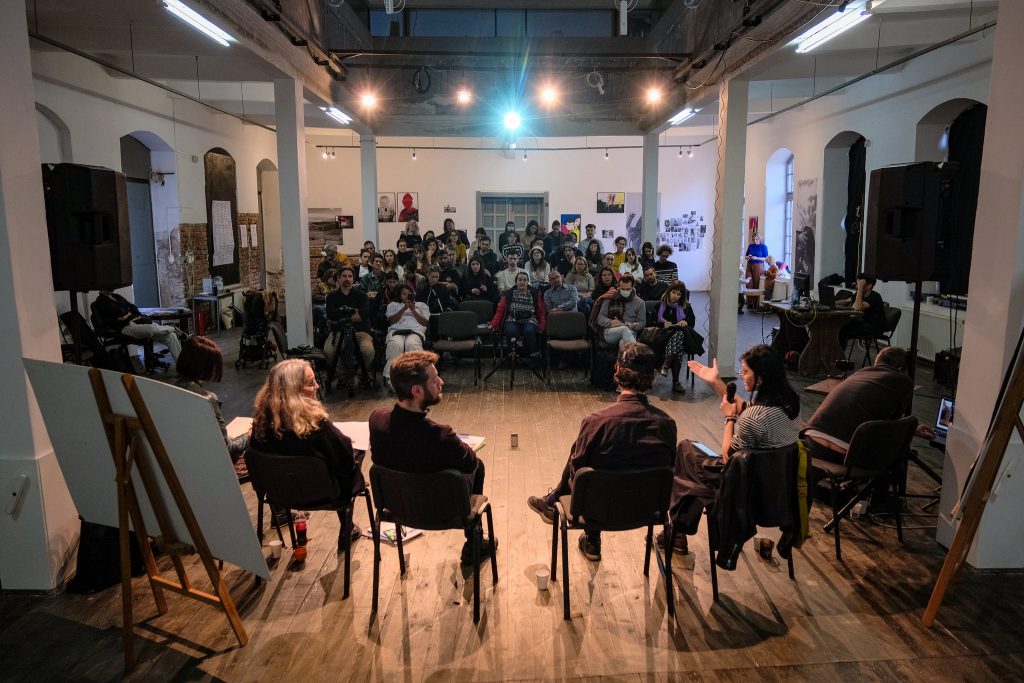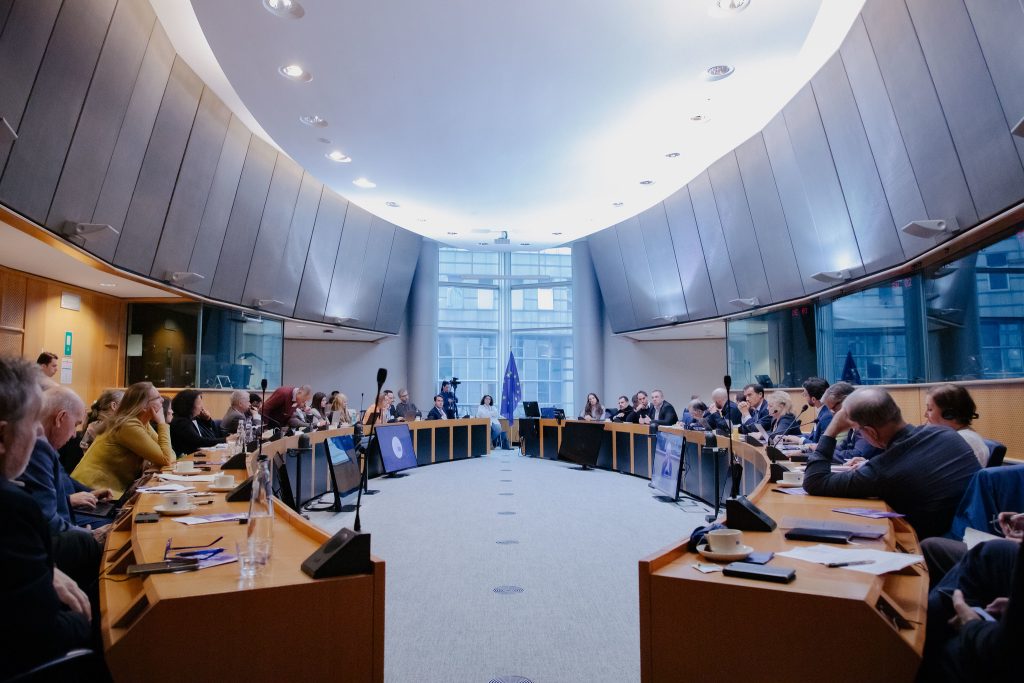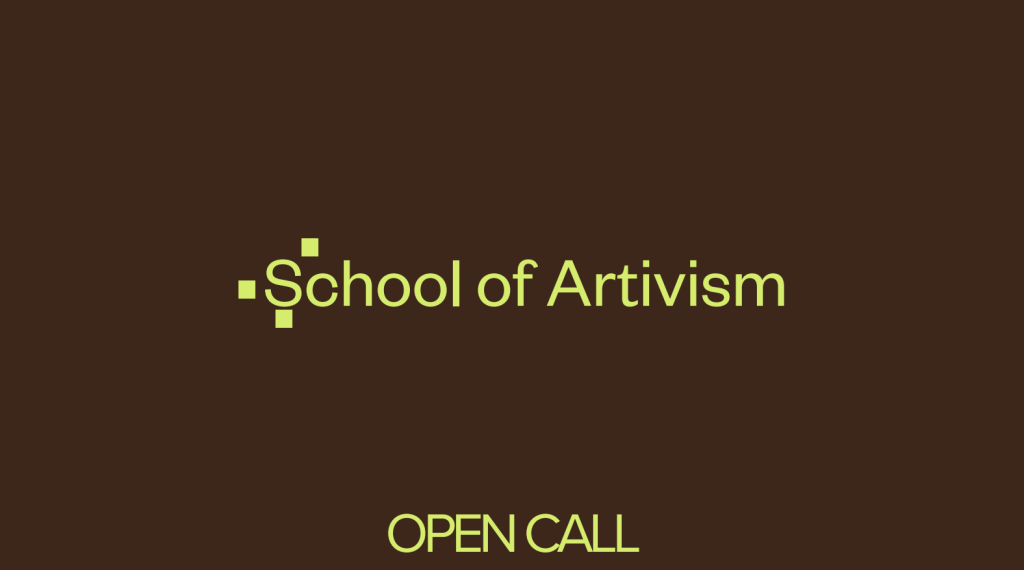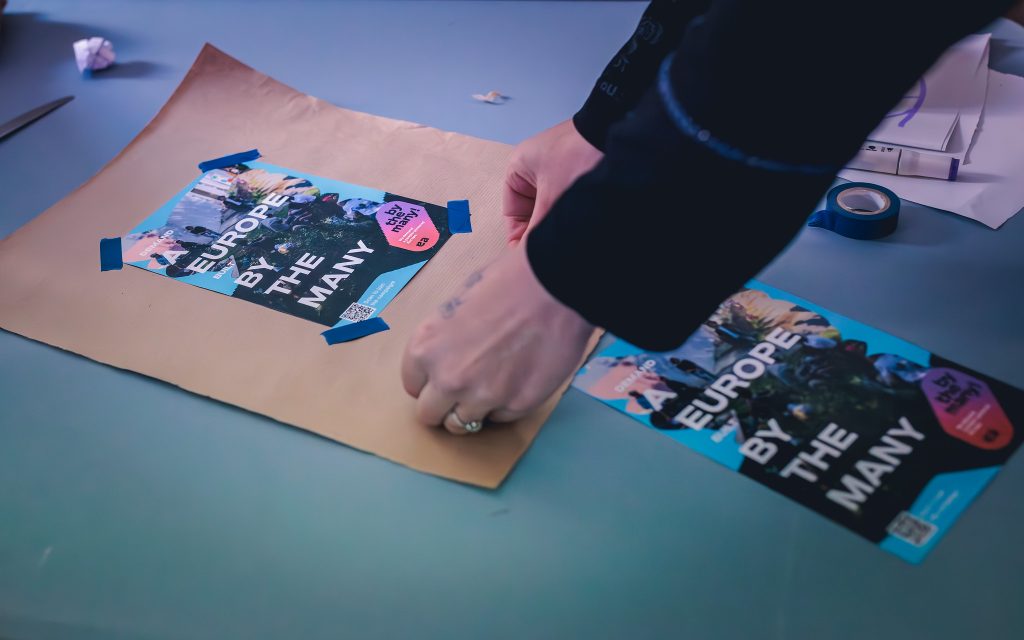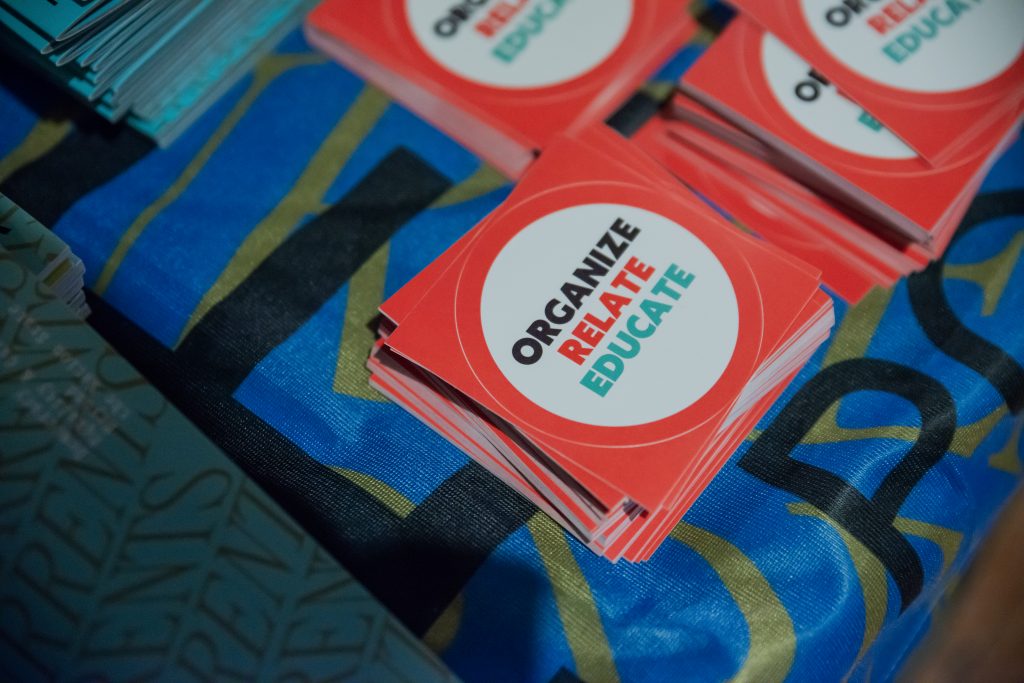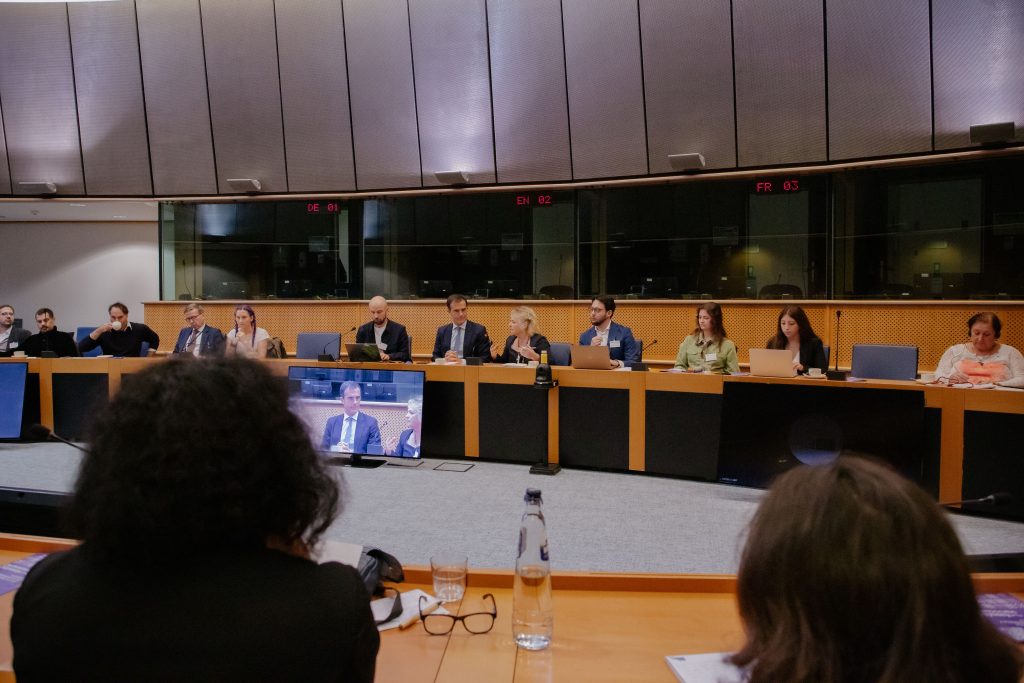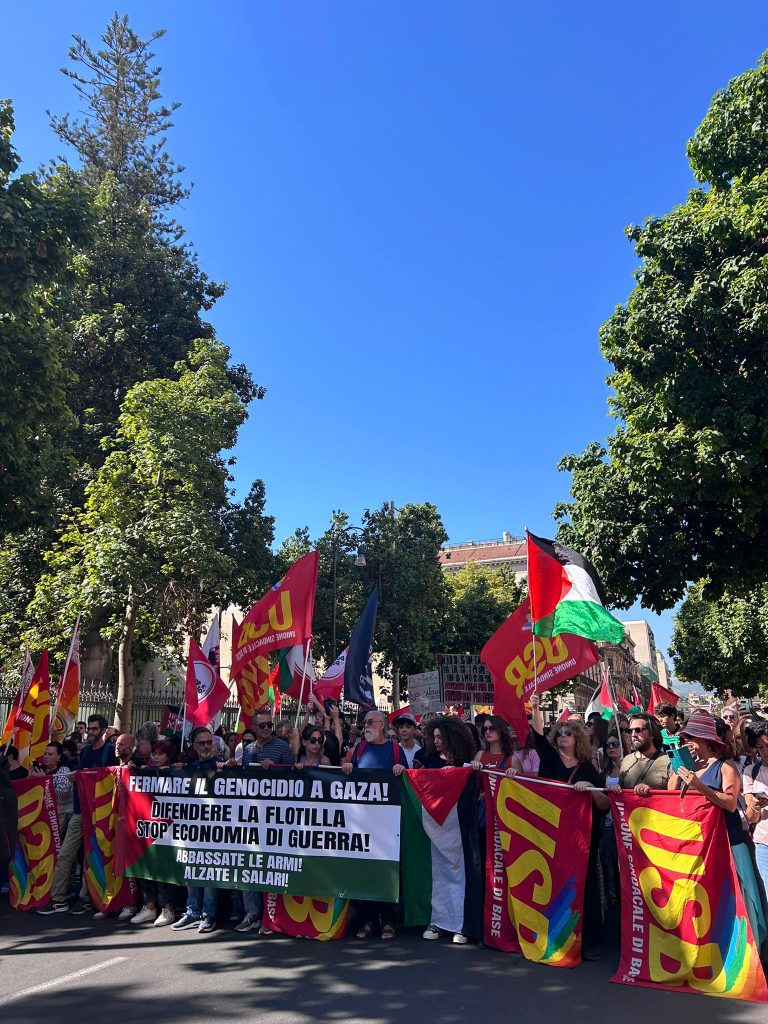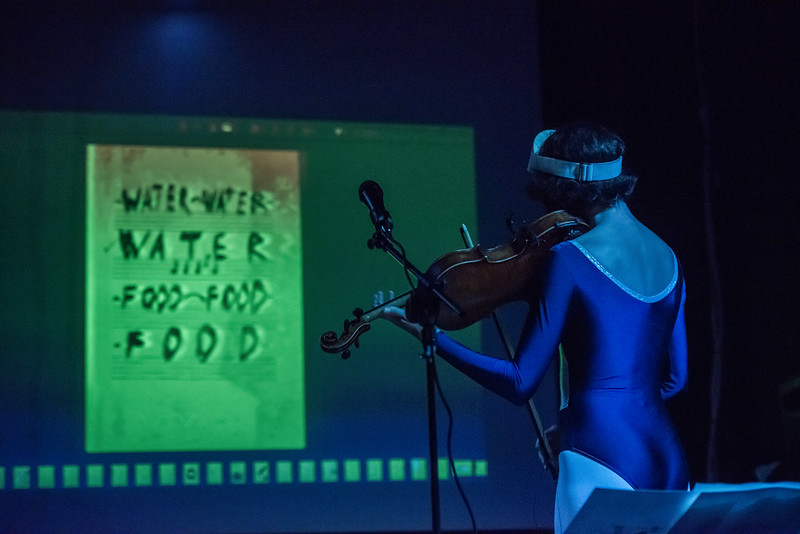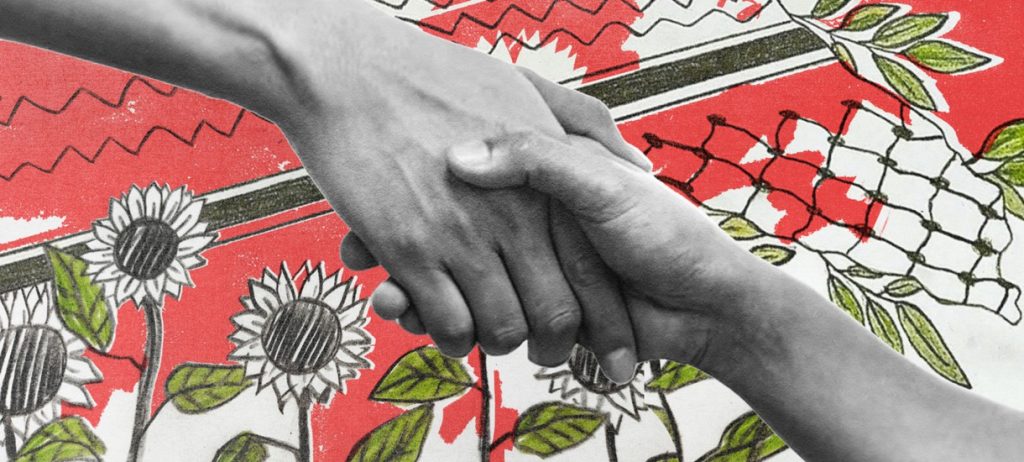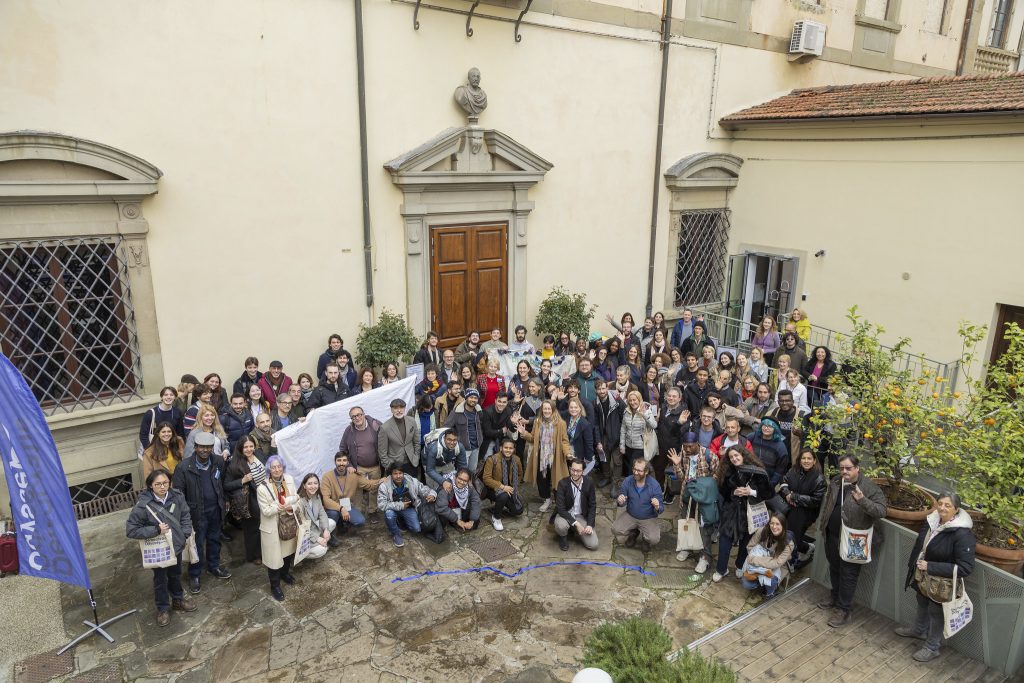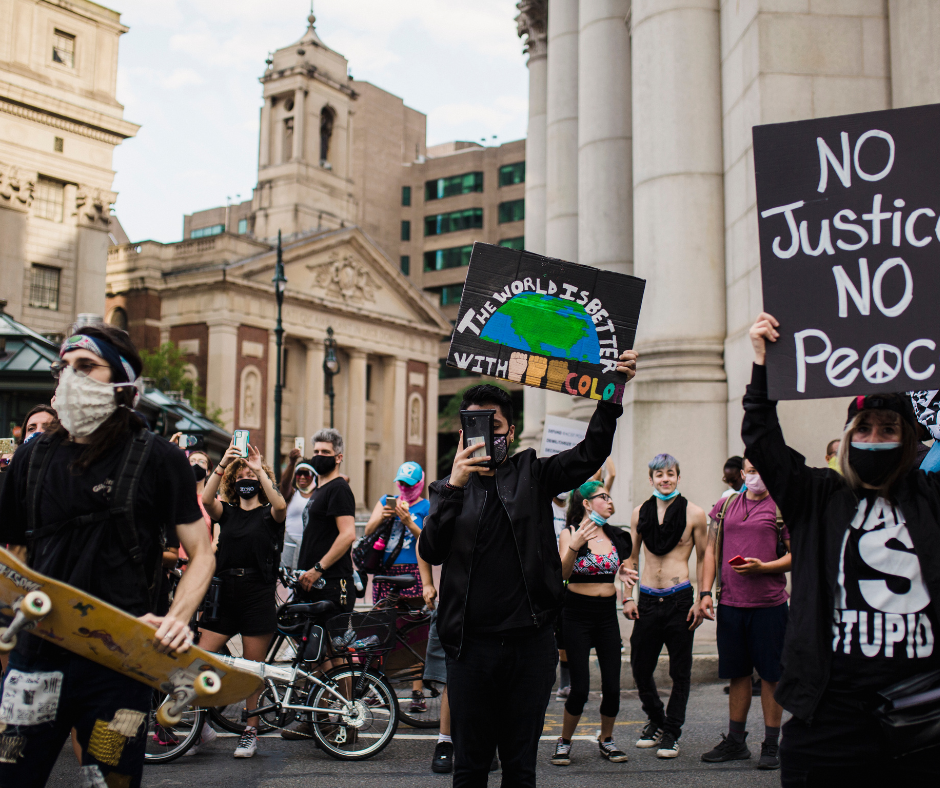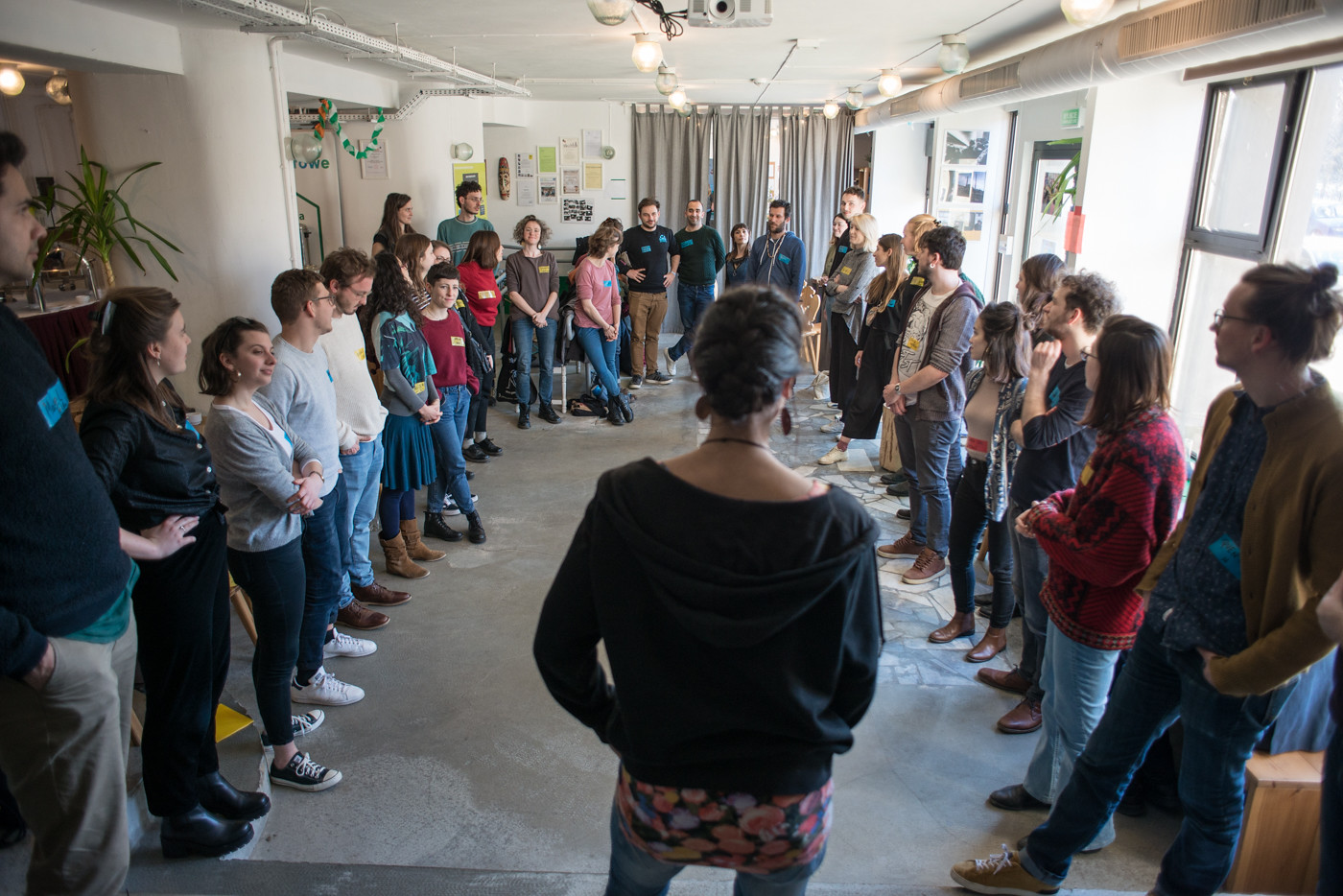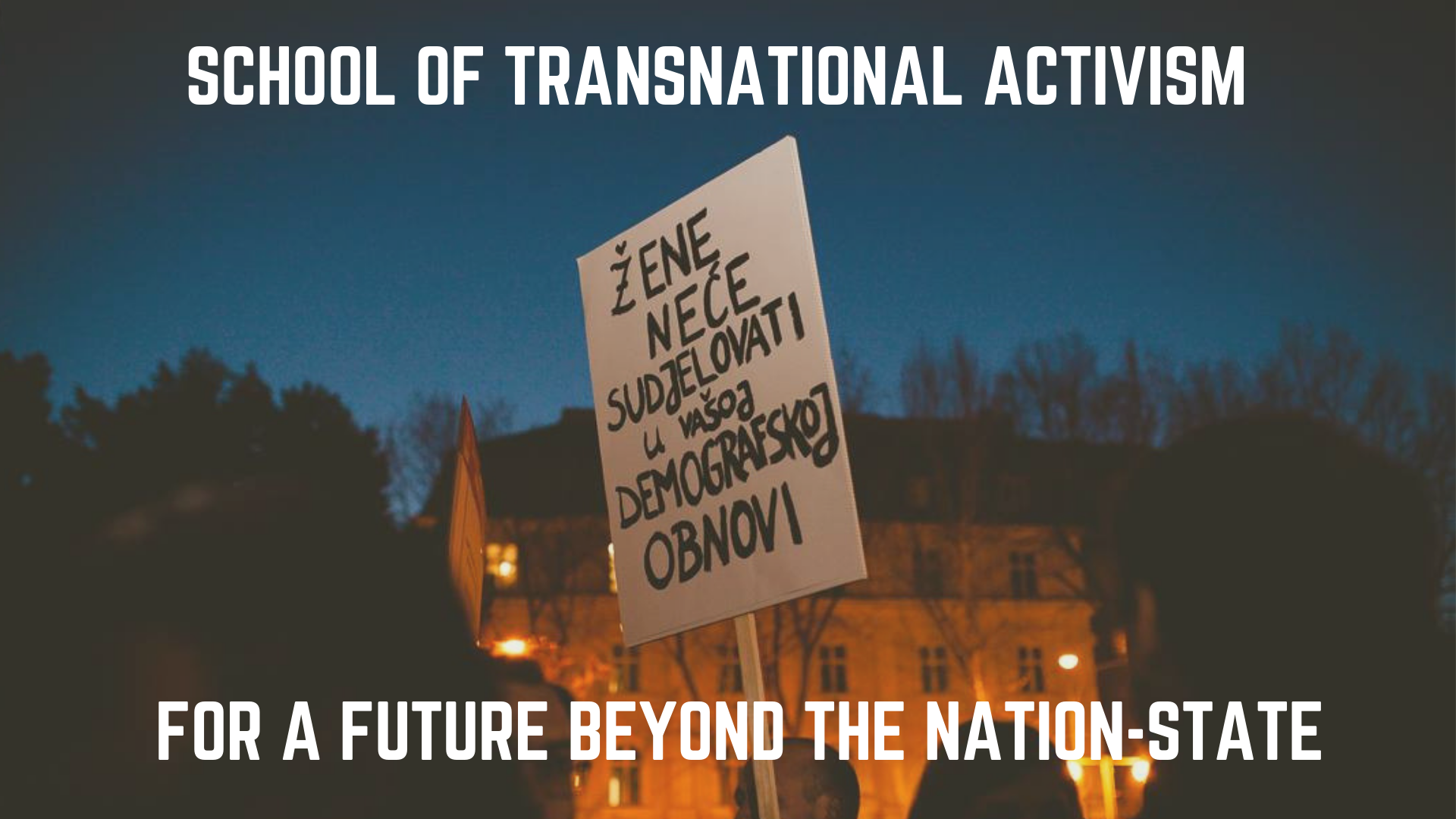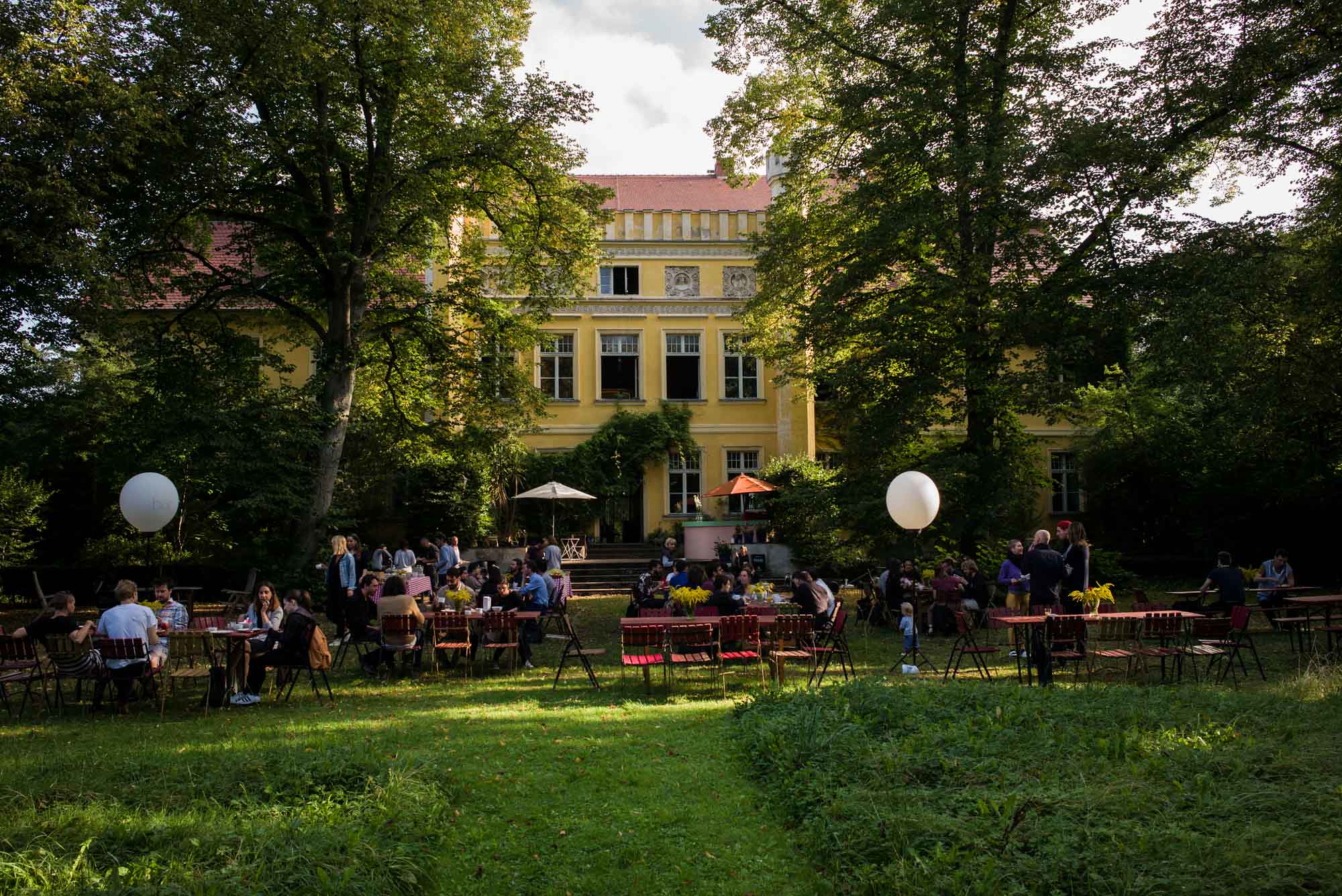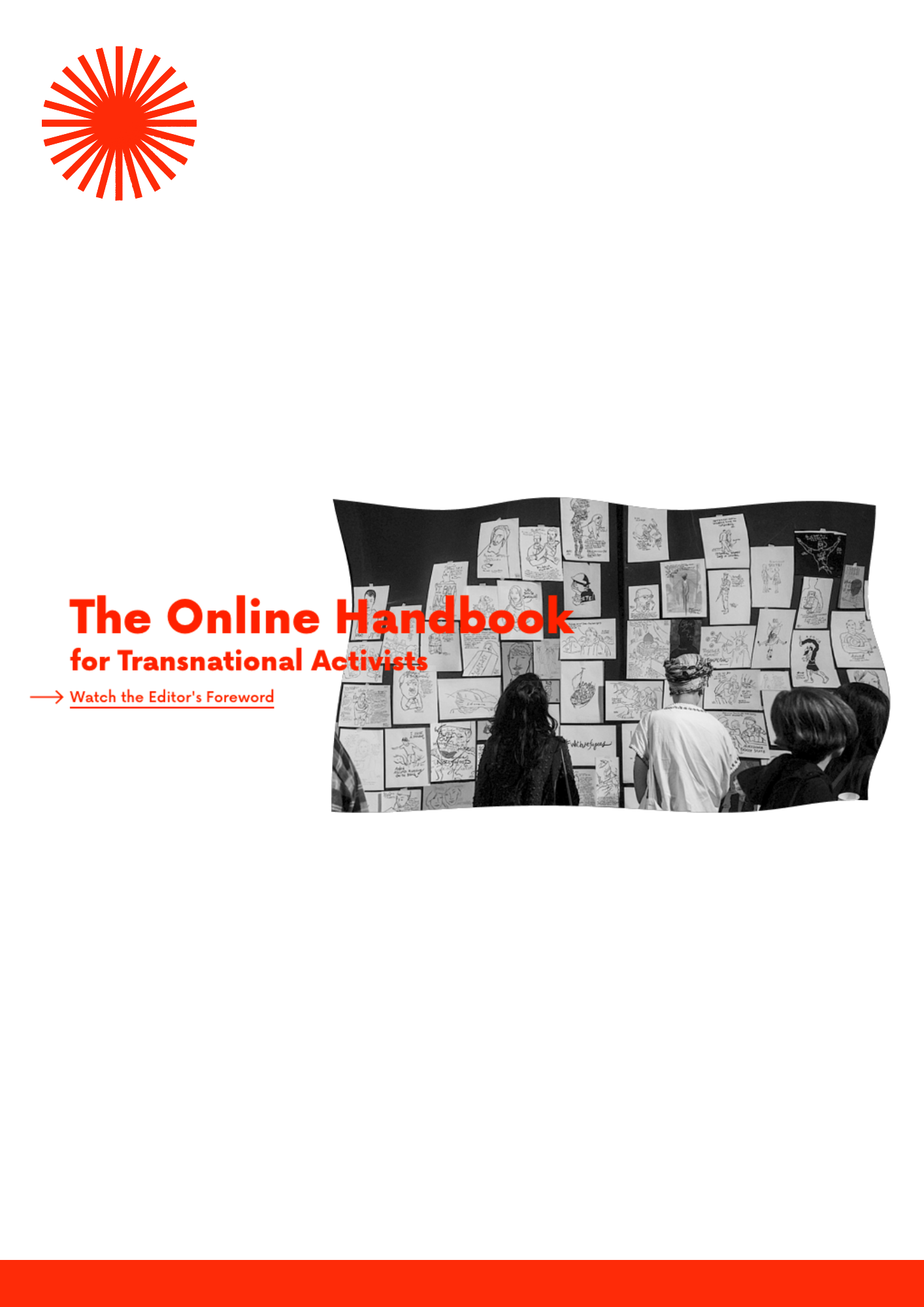In the autumn 2018, European Alternatives successfully launched the School of Transnational Activism, an experimental space, both digital and physical, which offers a deep learning experience, enriched by the perspectives and experiences of the learners and of well-known European activists and thinkers and researchers.
Since its inception, the School of Transnational Activism has engaged directly more than 200 activists and citizens directly in 4-days training sessions, and more than 20,000 citizens and residents of Europe indirectly through congresses, festivals and online activities. The School specifically delivered two different types of educational and training activities aimed at building the power and connections of activists keen on building campaigns or actions across borders or have a better understanding of contemporary transnational challenges and narratives on climate, migration and democracy.
Countries Involved
Europe
Duration of Project
October 2018 – January 2020
With the Support of
Co-funded by the Europe for Citizens Programme of the European Union and Citizens for Europe
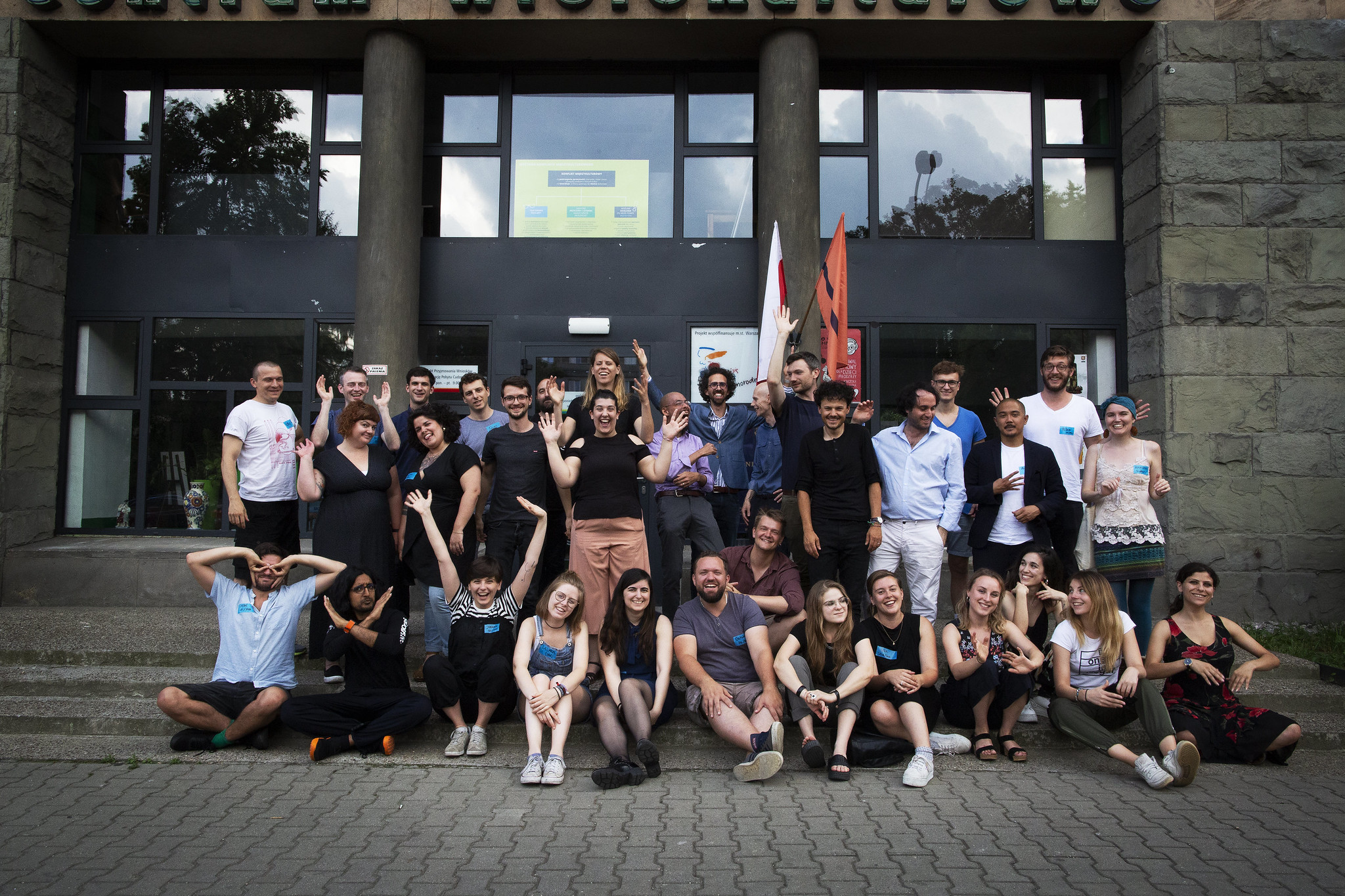
Our activities for the year 2018-19 included:
- Congress What Comes After the Nation State in Berlin (September 15-16, 2018): The School of Transnational Activism was launched at the Congress What Comes After the Nation State, a day of public sessions, gathering more than 550 participants, involving well-known keynote speakers such as Ann Pettifor, Ulrike Guérot, Maya Goodfellow, Alberto Alemanno, and many more, introducing potential participants to the themes of the School of Transnational Activism. These included transnational democratic reform, transnational solidarity, and an overview of the challenges in times of resurging nationalism, 10 years after the financial crisis of 2008. The event involved 519 participants from the city of Berlin (Germany), 4 from Rome (Italy), 3 from Warsaw (Poland), 2 from each of the following cities Amsterdam (NL), Vienna (AT) and Belgrade (RS) and 1 from each of the following cities Bologna (IT), Bergamo (IT), Messina (IT), Lisbon (PT), Bilbao (ES), Barcelona (ES), Sevilla (ES), Madrid (ES), Gothenburg (SE), Athens (GR), Prague (CZ), Budapest (HU), Newcastle (GB), London (GB), Paris (FR) and Toronto (CA)
- Train-the-Trainers Transnational Activism workshop in Palermo (January 17-20, 2019): the Train-the-Trainers workshop gathered 25 participants to develop the curriculum of the two training series of the School of Transnational Activism. Mixing renowned speakers in the fields of European citizenship, migration, climate change and expert trainers our consortium had worked in the past, the purpose of the workshop was to give the future trainers of the School a better sense of the topics tackled by the program, what are the key competences (knowledge, skills and attitudes) that should be part of the transnational capacity building program. The event involved 8 participants from the city of Palermo (IT), 4 from Berlin (DE), 3 from Rome (IT), 2 from each of the following cities Brussels (BE), Paris (FR, 1 from each of the following cities Cologne (DE), Athens (GR), Bergamo (IT), Warsaw (PL), Belgrade (RS), London (GB), Lleida (ES)
- First Transnational Organizing Training in Warsaw (March 21-24, 2019): The School organized the first transnational organizing training of a series of two, connecting and supporting a first cohort of 26 activists, all belonging to the campaigning group European May. European May is a European collective of progressive civic organisers, independent of traditional political parties or NGOs. The aim was to learn more about European citizenship and political rights in the European Union, in view to develop a campaign and direct actions aiming at calling people to sensibilise citizens in their localities on key thematics of the European elections (human rights, democracy, climate change, labour, free movement) and call for people to vote at the elections. The event involved 12 participants from the city of Berlin (DE), 2 from each of the following cities Warsaw (PL), Bratislava (SK), London (GB), and 1 from each of the following cities Belfast (GB), Amsterdam (NL), Paris (FR), Vienna (AT), Lisbon (PT), Wroclaw (PL), Lund (SE), Mainz (DE)
- First Transnational Narrative-building Training in Warsaw (June 20-23, 2019): the School organized the first transnational narrative-building and action training of a series of two, connecting and supporting a second cohort of 36 activists and citizens actively working for social justice, climate justice, migrants rights, women rights and democracy. Together, they strived to develop a shared vision of what an open, just and sustainable Europe would be. The events involved 9 participants from the city of Berlin (DE), 4 from each of the following cities London (GB), Rome (IT), 3 from Brussels (BE), 2 from each of the following cities Amsterdam (NL), Vienna (AT), and 1 from each of the following cities Copenhagen (DK), Belfast (GB), Belgrade (RS), Athens (GR), Ptuj (SL), Bergamo (IT), Madrid (ES), Lleida (ES), Warsaw (PL), Nicosia (CY), Tetovo (MK), Paris (FR)
- Second Transnational Narrative-building Training in Athens (September 12-15, 2019): the School organized the second transnational narrative-building and action training. Inquiring into the diversity of their lived experiences in Europe, the 25 participants took time and space to discuss their worldviews and why any transnational action should be rooted in narratives that are deconstructing the oppressive systems threatening our democracies (patriarchy, colonialism, shrinking civic space). The event involved 8 participants from the city of Berlin (DE), 3 from each of the following cities Brussels (BE), Rome (IT), 2 from each of the following cities Vienna (AT), Amsterdam (NL), and 1 from each of the following cities Nicosia (CY), Athens (GR), Ptuj (SL), Madrid (ES), Warsaw (PL), Belfast (GB), London (GB)
- Open Assembly of European Alternatives – Democracy Skillshare in Berlin (September 19-22, 2019): the School gathered 36 participants in Berlin who were engaged in sessions in which different forms of transnational actions (artistic, online) organized during the European Elections were shared and presented (Transeuropa Caravans / European May / Green New Deal for Europe). The participants were also presented with different fundraising models and methodologies for transnational action. The event involved 27 participants from the city of Berlin (DE), 3 from Rome (IT), 2 from Gothenburg (SE), 2 from Paris (FR), Bologna (IT), London (GB), Brussels (BE)
- School of Palermo and Conference Europe for the Many (November 8-11, 2019): The School of Palermo, the special edition of the School, taking place on 8-10th November, gathered more than 160 local, national and international participants from different disciplines to explore the European and planetary challenges of today and imagine a future beyond the nation-state: climate change, European democracy and free movement. The conference Europe for the Many on November 9th catalyzed the main topics of the School of Transnational Activism and brought together the School learners and a local audience of Palermitans in an exchange with high-level and renowned speakers and experts in the field of social and environmental policy across Europe. The event involved 120 participants from the city of Palermo (IT), 7 participants from the city of (IT), 6 from Berlin (DE), 5 from each of the following cities Rome (Italy), London (GB), 5 from each of the following cities Bagheria (IT), Milan (IT) and 1 from each of the following cities Oxford (GB), Brussels (BE), Burgas (BG), Copenhagen (DK), Paris (FR), Tblissi (GE), Athens (GR), Florence (IT), Thessaloniki (GR), Budapest (HU), Cattolica Eraclea (IT), Uzzano (IT), Bratislava (SK)
- Second Transnational Organizing Training in Amsterdam (January 9-12, 2020): the School organized the second transnational training entitled “From Action to Strategy: Building Transnational Power” to give the opportunity 26 old and new participants to join European May, deepen their knowledge of power in a transnational context and learn the tools to develop a strategic, people-centred campaign. The event included 7 participants from the city of Berlin (DE), Amsterdam (NL), 2 from each of the following cities Brussels (BE), Belgrade (RS), Lisbon (PT), Belfast (GB) and 1 from each of the following cities Athens (GR), Cluj (RO), Tetovo (MK), Minneapolis (US)
Online activities
The online activities of the School of Transnational Activism comprised two sets of activities: an Interactive Online Course on Countering Hate Speech and Webinars as part of the Transnational Organizing Training Series:
- Countering Hate Speech Interactive Online Course (First: November 5 until December 14, 2018 , Second: May 20 until June 21, 2019): the School, in partnership with the Sharing Perspectives Foundation, produced videos and contributed to the curriculum of two Interactive Open Online Courses where participants learn about and discuss current challenges posed by hate speech in their communities and societies at large. Not only did participants engage in dialogue about the topic and get access to expert video lectures, they also collaboratively worked towards creating a campaign to counter hate speech in various forms.
- Transnational Organizing Webinars (July – November 2019): as part of the Transnational Organizing training series, a series of webinars have taken place throughout the year aiming at developing the campaigning and fundraising skills of the participants of the series:
- Effective Campaigning Webinar (July 21, 2019): the purpose of the webinar is to build a common language and set of tools around effective campaigning to increase the effectiveness of local and transnational organizing.
- Building Power Through Deep Relationships Webinar (September 23, 2019): the purpose of the webinar is to understand how building deep relationships with a wide variety of people that will be involved or targeted by the campaign, helps build power.
- Peer to Peer Fundraising Webinar (November 10, 2019): the purpose of the webinar is to learn how to reach out and ask for money in your community, organize innovative formats of fundraising through using storytelling on social media and organizing events.

